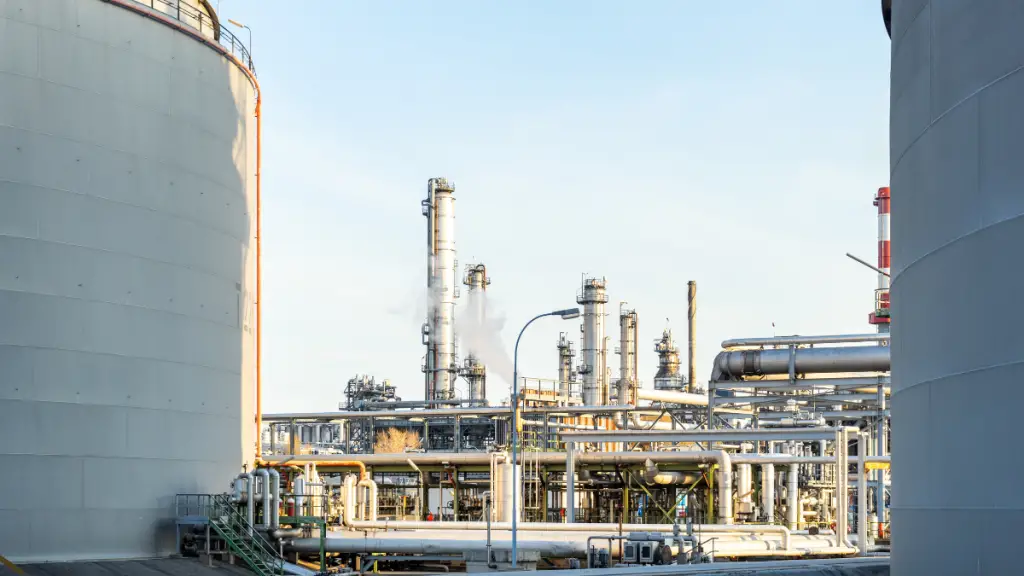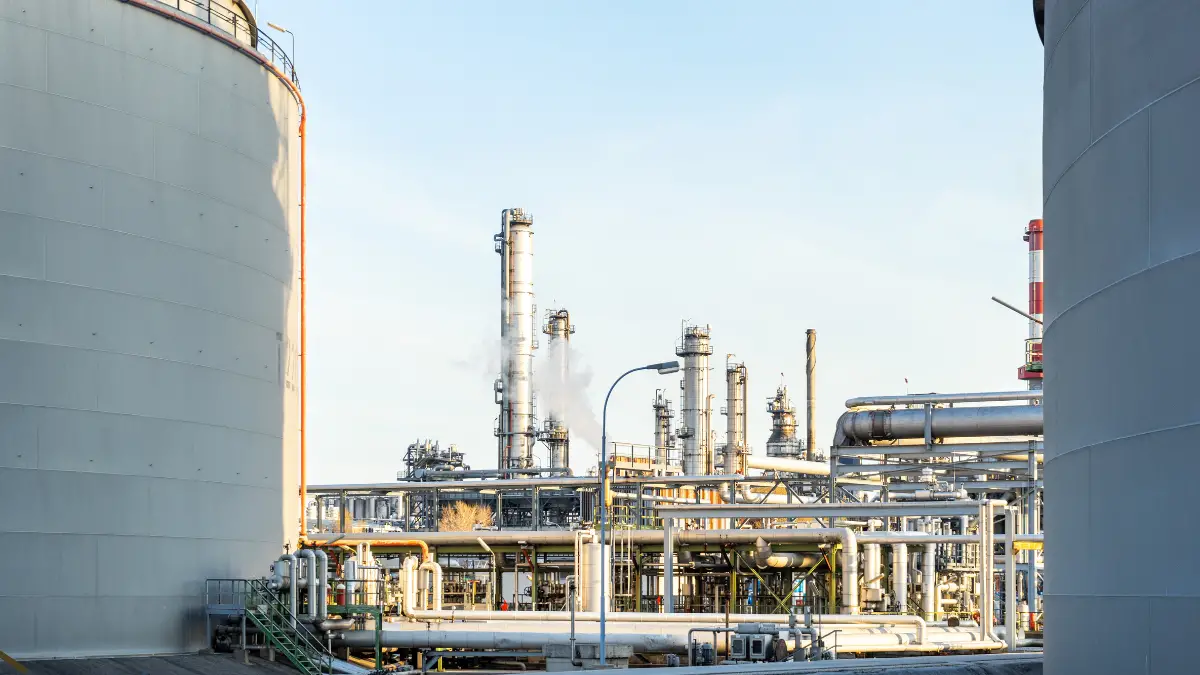Nigeria, Africa’s largest oil producer, has always been paradoxical. We export crude oil in massive quantities, only to turn around and import refined petroleum at an outrageously high cost. While this fuel loop has long been dominated by an elite class known loosely as the “importation cartel”, the commissioning of the Dangote Refinery has been hailed by many as a game changer.
But beneath the headlines, a deeper question remains: Is the refinery truly the answer to our fuel crisis, or just another pawn in a bigger power game?
This article dives into the unfolding power struggle between the newly launched Dangote Refinery and the entrenched fuel importation syndicates who have benefited from a broken system for decades. It’s not just a battle over barrels of oil, it’s a battle for Nigeria’s economic soul.
A Broken System Built on Imports
Nigeria’s reliance on imported fuel is more than inefficient, it’s criminally expensive.
Despite having four government-owned refineries, years of corruption, underinvestment, and poor maintenance have left them barely functioning. As a result, over 90% of refined fuel consumed in Nigeria is imported, mostly by a few well-connected companies who benefit from Subsidy schemes, Preferential forex access, and Political shielding.
This fuel importation system became a goldmine for insiders, locking Nigeria into a cycle of import-dependency while draining foreign reserves and inflating pump prices.
These importers have morphed into a cartel, not in the formal sense of an organized body with offices, but a loose coalition of brokers of influence, government insiders, shipping barons, and foreign partners who benefit from dysfunction.

Enter Dangote: Disruptor or Replacement?
When the $19 billion Dangote Refinery officially launched operations in 2024, hopes soared. With a capacity of 650,000 barrels per day, it’s touted as the largest single-train refinery in the world, with the potential to meet Nigeria’s fuel needs and even export to other African countries.
And that’s precisely where things get interesting.
The rise of this private behemoth threatens more than just the fuel importation cartel; it also threatens the networks of political rent-seekers who thrive on inefficiency.
Aliko Dangote, the billionaire industrialist behind it, has positioned the refinery as a symbol of industrial independence.
If you expected public protests or lawsuits against Dangote’s refinery, forget about it. The cartel fights in whispers through policy sabotage, bureaucratic delays, and bottlenecks of foreign currency access.
In recent months, reports have indicated that the Dangote Refinery, located in Nigeria, has not been able to access crude oil at reasonable domestic rates. The same NNPC that could not refine fuel efficiently will allegedly prioritize crude exports over domestic supply.
Why?
Because the longer Nigeria continues to import refined fuel, the more billions continue to flow through the same elite hands. These importers aren’t just businessmen; many are deeply embedded in politics, customs, maritime logistics, and even NNPC itself.
Dangote’s refinery doesn’t just threaten their business; it threatens their influence.
Can One Private Refinery Break a National Curse?
While the Dangote Refinery brings hope, it also raises valid concerns:
1. Monopoly Risk
Dangote’s refinery is currently the only one of its scale in Nigeria, and potentially, the only functional one nationwide. If all or most fuel must pass through a single gate, price control, access, and supply security rest on one man’s boardroom. Monopolies often lead to unchecked power, and in a country where regulation is weak, the risk becomes higher. Without active competitors, Dangote can set prices without resistance, especially in the absence of clear policy guidelines or enforcement.
2. Lack of Transparency
Although the refinery is privately owned, its operations directly affect public life, from fuel affordability to industrial productivity. Nigerians deserve clarity on its operations. How much will fuel cost? How are prices determined? Who gets supply priority? If these questions remain unanswered, public trust may erode quickly. Transparency breeds accountability, and that must apply to private entities influencing national economics.
3. Foreign Competition Pressure
International refiners, especially from Europe and Asia, have historically made billions supplying Nigeria. The Dangote Refinery threatens that. Don’t expect them to cheer it on. Foreign lobbyists, backed by economic interests, may pressure the Nigerian government or manipulate international crude flows to undercut domestic refining. Whether it’s dumping cheaper products or lobbying to restrict crude access, Nigeria must prepare for geopolitical resistance to local self-sufficiency
A Nation at the Mercy of Gatekeepers
Whether it’s the government, the cartel, or a private refinery owner, the recurring theme in Nigeria’s fuel story is this: the masses remain at the mercy of a few.
The average Nigerian doesn’t care whether the fuel was imported or locally refined; they just want it affordable, accessible, and stable.
Yet, pump prices fluctuate violently. Queues return without warning. And while NNPC and Dangote trade headlines, small businesses continue to shut down, unable to keep up with diesel or petrol costs.
This is no longer an infrastructure problem, it’s a power problem. And until Nigeria breaks the cycle of concentrated control, we will keep swapping one captor for another.
What Needs to Happen (And Fast)
To ensure that the Dangote Refinery becomes a national asset rather than a private stronghold and to dismantle the grip of the fuel cartel, Nigeria must:
Ensure Equal Access to Crude: Domestic refineries should be given priority in crude allocation before exports.
Break the Monopoly: Support other modular refineries to encourage competition and balance Dangote’s dominance.
Strengthen Regulation: Empower independent agencies to monitor and regulate pricing, quality, and supply flow, even for private refineries.
Transparency from Dangote Group: Nigerians deserve regular updates on capacity, pricing models, and fuel quality to build trust.
Phase Out Fuel Imports: Set a clear timeline for phasing out dependence on imported petroleum products.
Conclusion
Who Really Wins the Fuel Fight?
The battle between the Dangote Refinery vs. the Importation Cartel isn’t just about oil. It’s about who gets to shape Nigeria’s future, control its economy, and influence its politics.
If the refinery is allowed to flourish without becoming another monopoly, Nigeria could break free from decades of fuel bondage. But if political sabotage or unchecked dominance sets in, the masses will continue to suffer, just under new management.The choice is ours, and time is ticking





